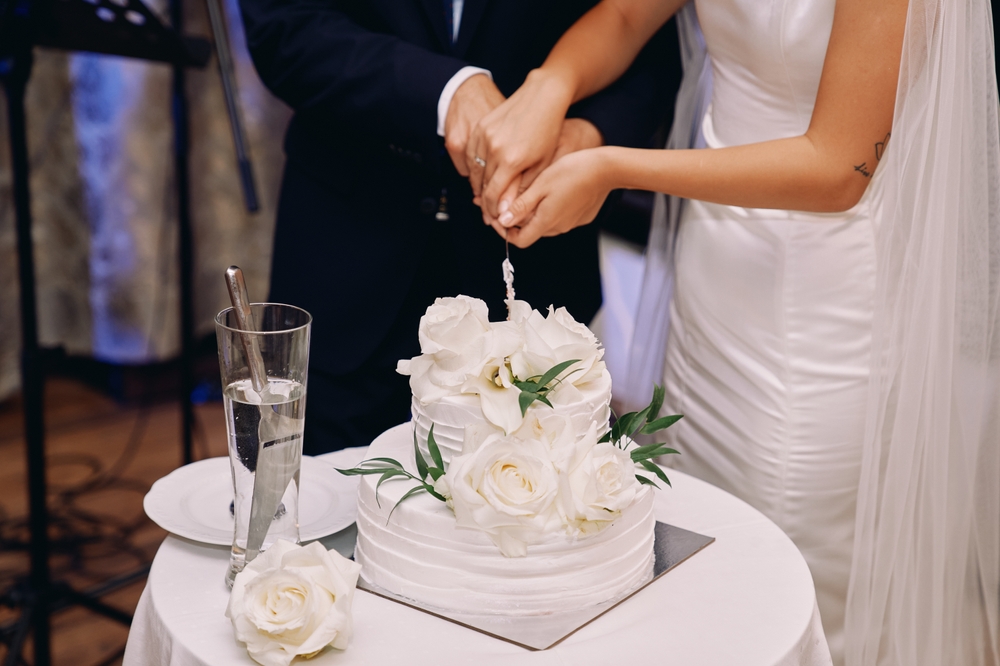
Weddings are a joyful celebration, but they can also come with a staggering price tag. For many grooms, the pressure to follow long-standing traditions can mean stretching finances to the breaking point. From the proposal to the honeymoon, expectations pile up fast. Suddenly, what should be a happy occasion becomes a source of financial stress. Understanding which wedding traditions often push grooms into debt is the first step to making smarter choices and starting married life on solid financial ground.
1. The Costly Engagement Ring
One of the most expensive traditions is buying an engagement ring. Many grooms feel pressured to spend thousands to meet the “three months’ salary” myth. This expectation can lead to loans or maxed-out credit cards before the wedding planning even begins. In reality, the value of a ring should be based on personal budget, not outdated rules.
2. Lavish Bachelor Parties
Bachelor parties have evolved from simple gatherings into multi-day, out-of-town adventures. Grooms are often expected to foot the bill for travel, accommodations, and group activities. Costs can easily spiral into the thousands, especially if friends expect a Vegas weekend or an international trip. This tradition leaves many grooms starting their marriage already in the red.
3. Paying for the Rehearsal Dinner
The rehearsal dinner is another tradition that can be surprisingly expensive. While it used to be a small, family-focused meal, it’s now common to invite the entire wedding party and out-of-town guests. Grooms and their families may feel obligated to host at a fancy restaurant, adding another big expense on top of wedding costs.
4. The Groom’s Attire and Accessories
While much attention is paid to the bride’s dress, the groom’s outfit can also be costly. Renting or buying a designer tuxedo, shoes, cufflinks, and even custom tailoring adds up quickly. Some grooms feel pressured to match the formality of the event or the bride’s gown, pushing them to spend more than planned.
5. Wedding Gifts for the Bride
Gift-giving between couples is a tradition that can get overlooked in the wedding budget. Some grooms feel pressure to give extravagant gifts like jewelry, watches, or even surprise trips. These added expenses can tip a tight budget into dangerous territory, especially when combined with other wedding-related costs.
6. Covering Groomsmen’s Expenses
It’s traditional for grooms to cover certain costs for their groomsmen, such as matching ties, pocket squares, or even full outfits. Some also pay for lodging or bachelor party activities. These costs can add up fast, especially with a large wedding party. Trying to be the “generous groom” can quickly become a financial burden.
7. The Wedding Band Splurge
Wedding bands are another area where tradition and expectation drive up spending. Some grooms feel pressure to purchase high-end bands with custom engravings or precious stones. While meaningful, these extras can significantly increase the final bill, pushing grooms closer to wedding debt.
8. Funding the Honeymoon
Honeymoons are often seen as the ultimate romantic getaway, but they can be a major source of wedding debt. All-inclusive resorts, international flights, and luxury experiences are marketed as the standard. Many grooms take out loans or use credit cards to pay for a dream trip, only to face the financial hangover when they return.
9. Traditional Dowries or “Bride Price”
In some cultures, grooms are still expected to provide a dowry or bride price. These can be significant sums of money, gifts, or property. Even if not required, family expectations can lead grooms to spend more than they can afford to honor tradition. This practice continues to push many into unnecessary wedding debt.
10. Extravagant Wedding Venues
The choice of wedding venue can make or break a budget. Grand ballrooms, historic estates, or destination weddings come with premium price tags. Grooms often feel pressure to “wow” guests or meet family expectations, stretching finances thin. Venue costs are one of the largest contributors to wedding debt, especially when paired with catering and decor.
Breaking the Cycle of Wedding Debt
It’s easy to see how wedding traditions can push grooms into debt, but it doesn’t have to be that way. Open conversations with your partner and family about budget and priorities are crucial. There’s no shame in scaling back or skipping traditions that don’t fit your financial reality. Choosing what matters most—and being honest about what you can afford—can help you avoid starting married life under a mountain of bills.
If you’re planning a wedding, focus on your relationship and future together instead of expensive traditions. Which wedding tradition do you think is most likely to cause wedding debt? Share your thoughts in the comments!
What to Read Next…
- 8 Marriage Traditions That Are Quietly Being Abandoned
- 10 Ways Your Happy Marriage Is Secretly Built on Silent Resentment
- 9 Marriage Habits That Financial Advisors Secretly Warn Against
- 11 Relationship Roles Men Are Quietly Walking Away From
- 10 Relationship Fixes That Experts Say Only Make It Worse
The post 10 Wedding Traditions That Push Grooms to Debt appeared first on Clever Dude Personal Finance & Money.







